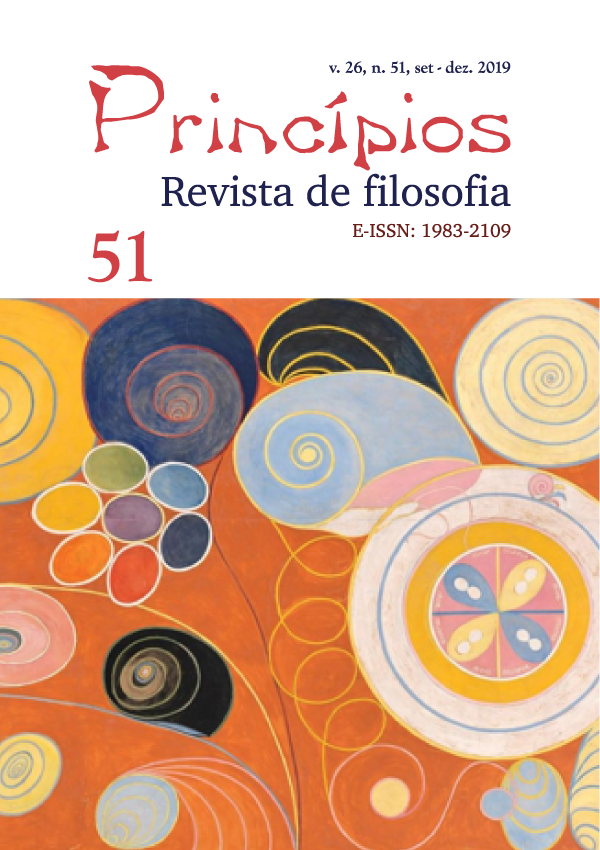Os princípios básicos da ética na epistemologia de Karl Popper
DOI:
https://doi.org/10.21680/1983-2109.2019v26n51ID18058Palavras-chave:
Ética, Epistemologia, Racionalismo crítico, FalseamentoResumo
O presente trabalho aborda a ética na epistemologia de Karl Popper a partir da concepção do pensador sobre a compreensão das limitações do conhecimento humano, da importância de um critério de demarcação dos enunciados científicos através do falseamento das teorias e a defesa do racionalismo crítico no estímulo a crítica, autocrítica, a ousadia e a criatividade na atividade do cientista. A ética na epistemologia popperiana manifesta-se no compromisso da ciência com a construção de uma sociedade justa e o exercício de uma cidadania responsável, o que caracterizou um caráter inovador e original para o momento em que o dogmatismo era a chave-mestra dos pressupostos científicos. Além disso, destacamos o papel central do racionalismo crítico como matriz ética na epistemologia popperiana que inclui importantes referências aos valores pragmáticos, éticos e sociais focados em esforços para reduzir a violência, o crime e a crueldade.
Downloads
Downloads
Publicado
Como Citar
Edição
Seção
Licença
Autores mantêm os direitos autorais e concedem à revista o direito de primeira publicação, com o trabalho simultaneamente licenciado sob a Licença Creative Commons Attribution que permite o compartilhamento do trabalho com reconhecimento da autoria e publicação inicial nesta revista.
Termos da licença:
| Não Comercial (NC) | Os licenciados podem copiar, distribuir, exibir e executar a obra e fazer trabalhos derivados dela, desde que sejam para fins não comerciais. |
| Compartilha Igual (SA) | Os licenciados devem distribuir obras derivadas somente sob uma licença idêntica à que governa a obra original ou menos restritiva. |


 Português (Brasil)
Português (Brasil) English
English Español (España)
Español (España) Français (Canada)
Français (Canada)


